A Search for Nutritional Solutions for Sleepless Nights
Written and illustrated by Lila Volkas, Nutrition Consultant student
This article was originally featured on KQED’s Bay Area Bites blog. It has been re-posted with permission from the editor.
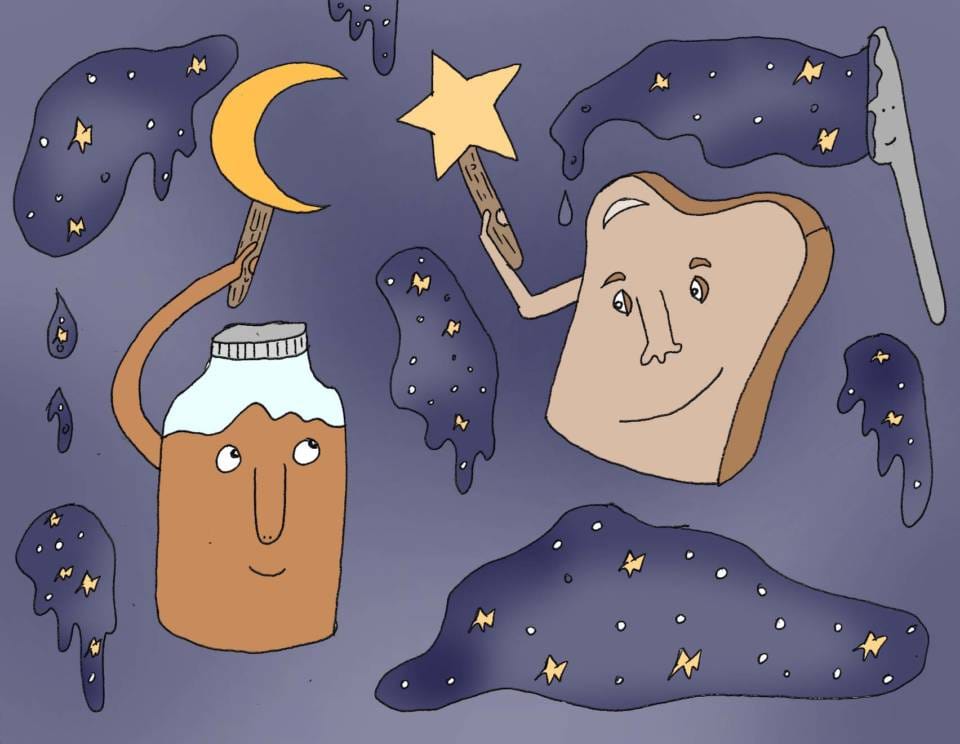
Darn. It’s the third night in a row that I’ve woken up at 3am feeling wide-awake. And I’ve done everything I’m “supposed to do” for a successful night of sleep: pulled a blackout curtain tightly across my window, have a fan blowing to ensure a cool climate, and put in ear plugs to block out all sounds. I made sure my computer and phone screen hues changed to an orangey glow to tell my body it was nighttime with f.lux and Night Shift. I practiced my daily meditation, went to a strenuous morning Zumba class and only had one cup of green tea with breakfast. Why is this happening?! After more than an hour of tossing and turning and a crossword puzzle, I finally fall back asleep.
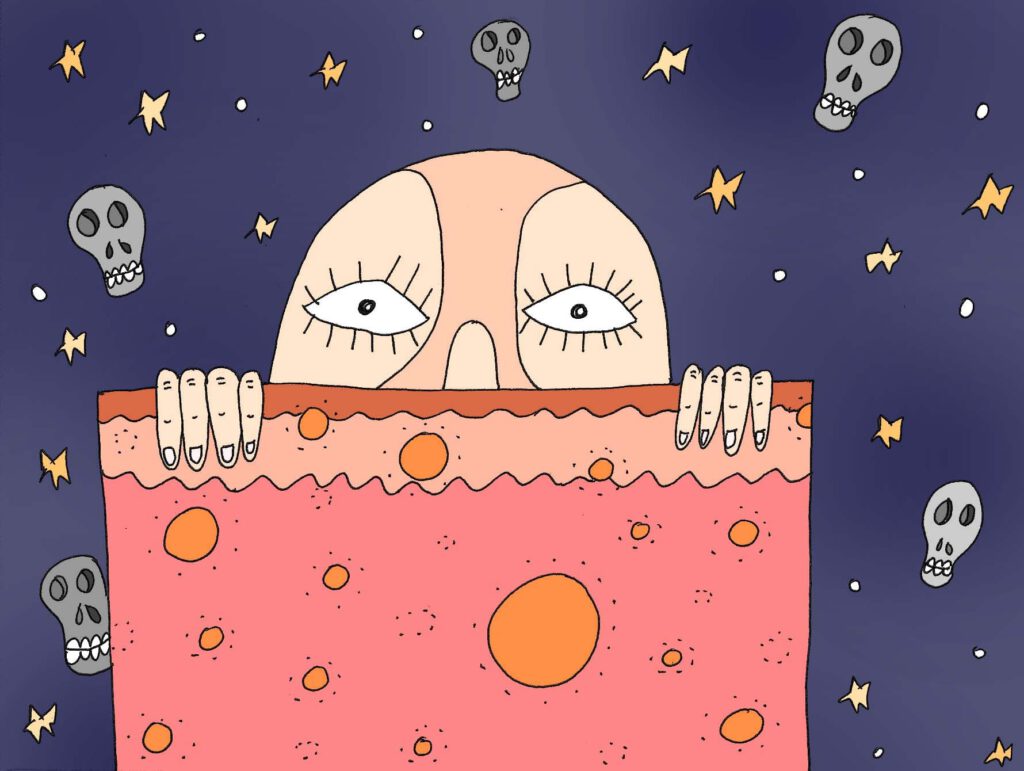
I’m a determined person and passionate about food and health, so I set out to see if there is an edible answer to my insomnia woes. First, I consult my handy holistic vitamin, mineral, herb and food remedy book, Prescription for Nutritional Healing by Phyllis A. Balch.
Eating foods in the evening that are high in the essential amino acid tryptophan, Balch recommends, will help your body make serotonin. Serotonin is known to produce healthy sleep cycles and helps support a stable mood. Bananas, figs, milk, nut butters, tuna, turkey, whole grain crackers and yogurt, Balch cites as being high in tryptophan.
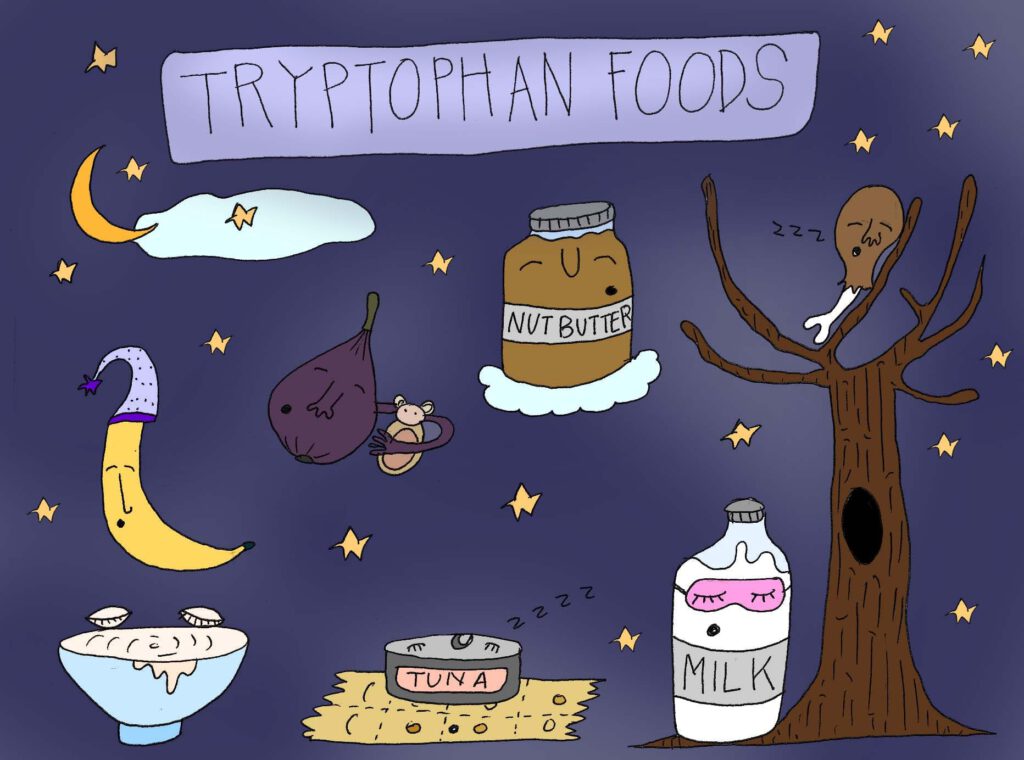
She cautions against nighttime snacking on foods that contain tyramine, however, which increases the release of norepinephrine, a brain stimulant. Eating bacon, aged cheese, chocolate, eggplant, ham, potatoes, sauerkraut, sugar, sausage, spinach or tomatoes in the evening, I learn, will increase my heart rate, mental alertness and blood pressure just as I’m trying to wind down. (Goodbye BLT and hot chocolate!)
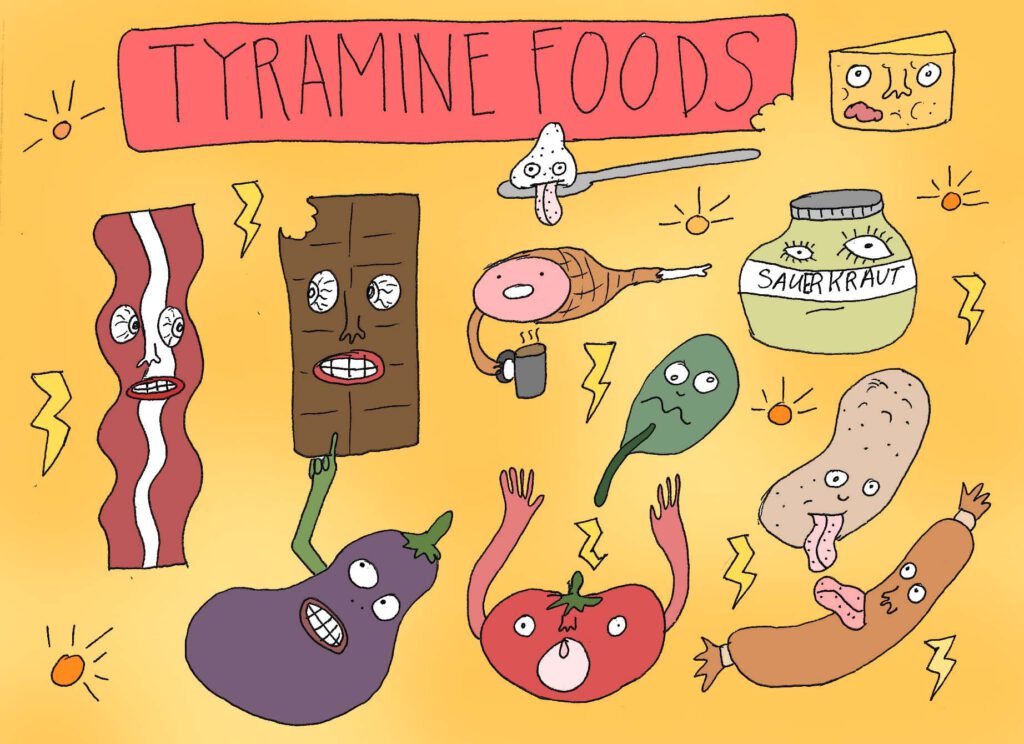
Another tip is the familiar recommendation to avoid caffeine 4-6 hours before bedtime as well as alcohol, which in small amounts can help induce sleep, but actually disrupts deeper sleep cycles.
All right. I get it: there’s a bunch of specific foods I should enjoy as well as avoid at nighttime. Somehow this taste of information has made me hungry for more. Naturally, I turn to the Internet for a second opinion on the relationship between food and sleep. According to the Sleep Foundation, while foods containing tryptophan may make you drowsy, the evidence that they actually change your sleep pattern is mixed. For an ideal light nighttime snack, carbohydrates will make tryptophan more available, so a few whole-grain crackers with some mild cheese, nut butter on toast or non-sugary cereal and milk can be good choices.
Maybe all I needed last night was a little tryptophan tapa before bed, and I’m definitely a gluten-free toast and almond butter girl. All my sources agree we only need small portions of these snacks at nighttime. Your body doesn’t want to process a giant late night burrito right before you go to sleep because it has enough to do as you snooze. Not only does what you eat during the evening affect your shut-eye, but this scientific study links a general diet of low fiber, high saturated fat and sugar intake with lighter, less restorative sleep and more disruption.
I’m somewhat satiated by these research results, but I want the opinion of a real live professional. So I call up my friend Rachel Barach, a certified Holistic Nutritionist and Eating Psychology Coach, and invite her over for tea and a friendly chat.
In our interview, Barach surprises me with a different perspective. “It all comes down to blood sugar,” she tells me. “If your blood sugar is too low while you’re sleeping, your body will release cortisol, the stress hormone, to wake you up. Suppose you are the type of person who eats many small meals throughout the day, and let’s say you have dinner at 7pm, and don’t eat anything else until going to sleep at 11:30pm. By 3am,” Barach explains, “that’s actually a lot of hours of not eating. So if you are a ‘grazer’ and your body is used to having food every three hours during the day, then having a snack before bedtime could help your sleep, by preventing that drop in blood sugar in the middle of the night.” (Ah, that might explain my 3am wake ups.)
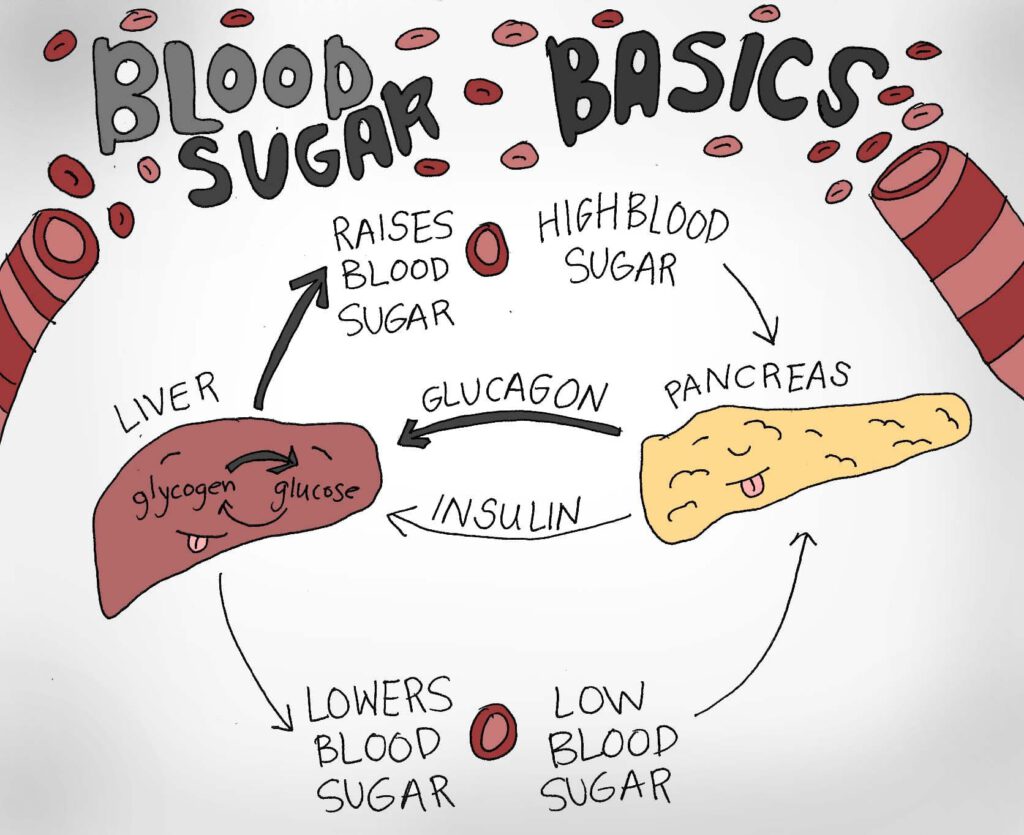
“The ideal snack for a “grazer,” Barach emphasizes, “is something with a ‘slow burn’ containing fiber, such as oatmeal, some yogurt and granola, or a small bowl of lentil soup. However, she clarifies, if you are a slow digester, eating right before you go to bed could keep you up.
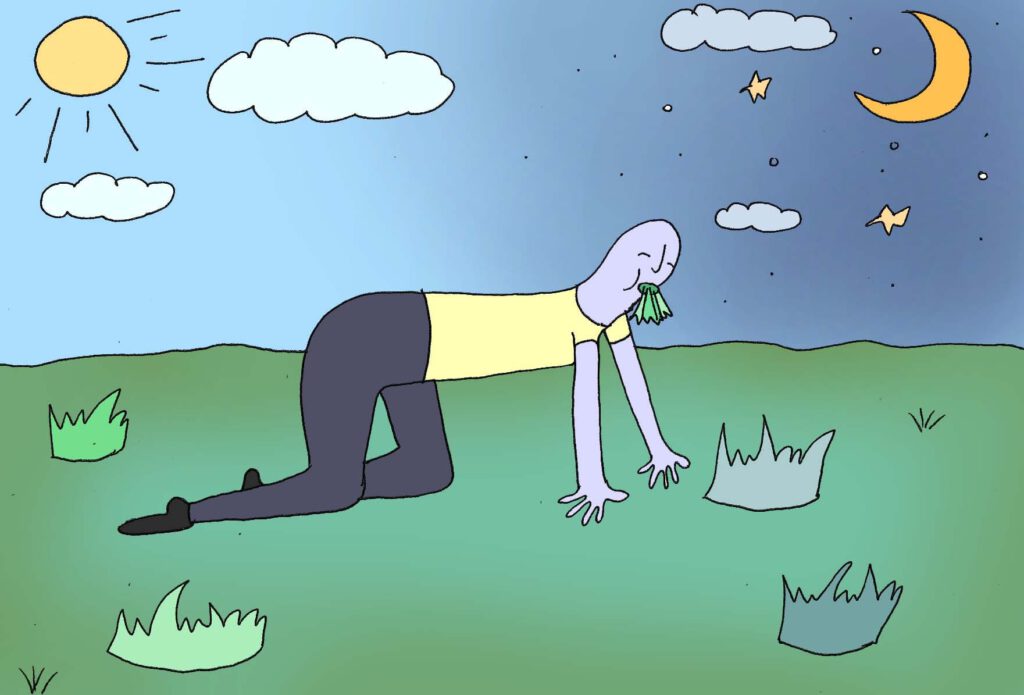
Unfortunately there is no one answer, it all depends on the person,” she says.
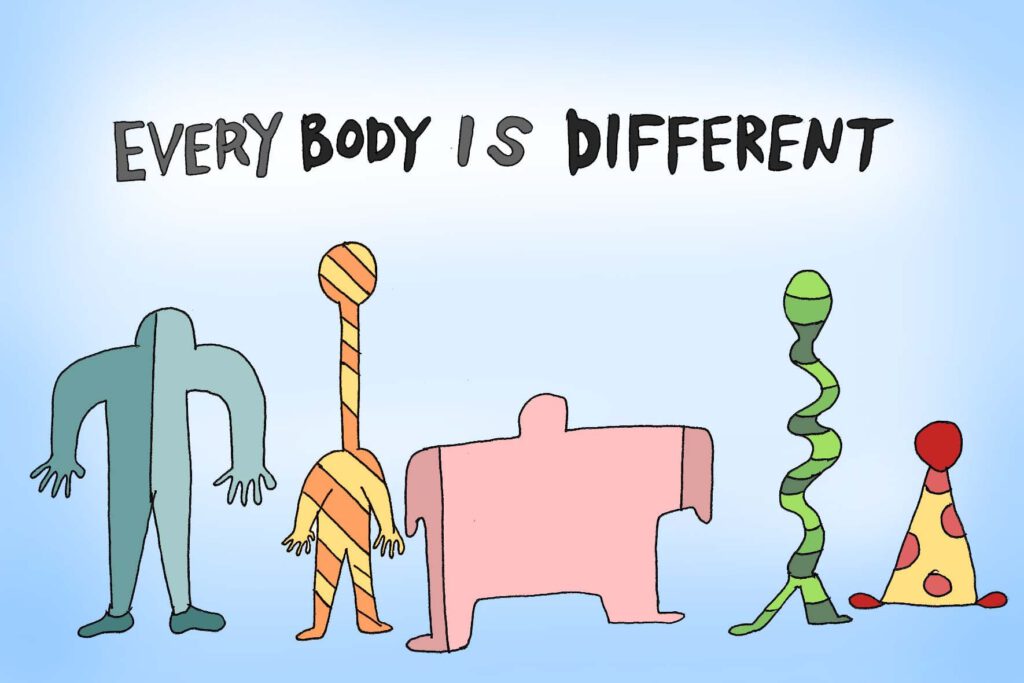
“Having high blood sugar at night can also disrupt one’s sleep. One of the ways the body regulates high blood sugar is by eliminating sugar through the urine. But getting up multiple times throughout the night to pee also disrupts sleep. High blood sugar at night can be a sign of diabetes or the body’s reaction to different types of stress,” cautions Barach.
Barach debunks the myth that Thanksgiving turkey puts everyone to sleep. Though turkey does in fact contain tryptophan, the amino acid discussed earlier, it’s probably the multitude of dishes eaten at the annual feast, not to mention the portion sizes that cause the zzz’s. Eating a large meal creates a spike in blood sugar; your body produces insulin to lower the glucose levels in the blood and then your blood sugar plummets, making you tired. This is why people often feel sleepy after Thanksgiving or any large meal.
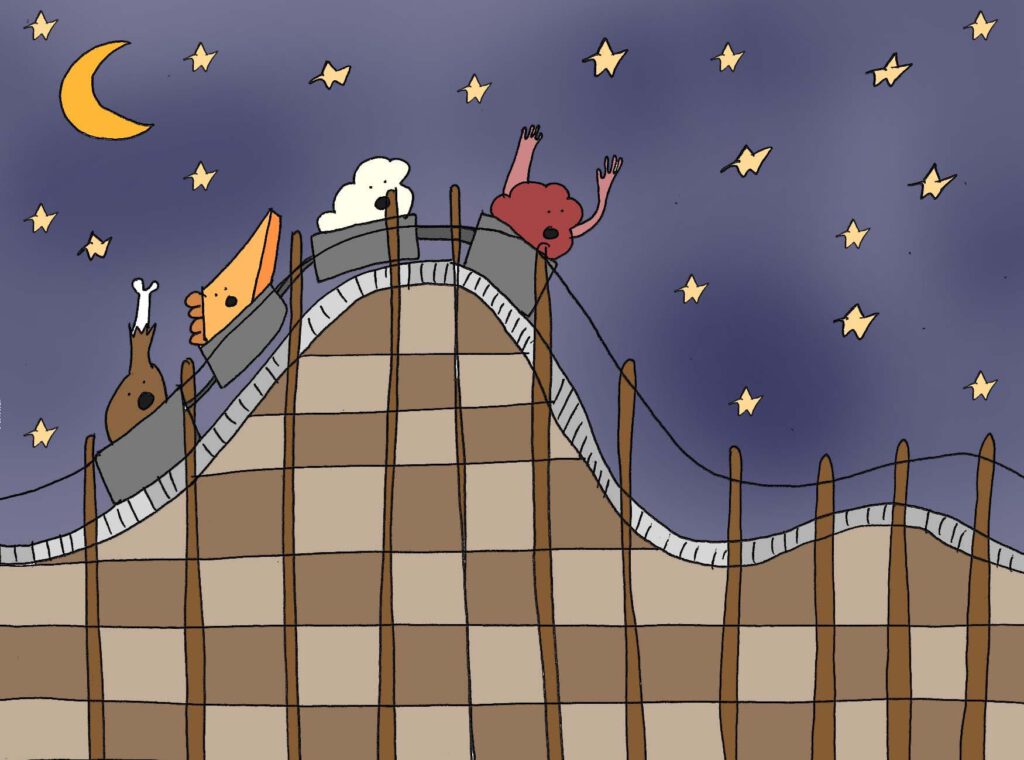
If, instead of grazing, you do fine on three meals a day, then you may not need a nighttime snack. Barach speaks of the research about “intermittent fasting.” “Going 12 or more hours without food can be a good thing. Again, it totally depends on your body and genetic predispositions. Humans haven’t always had access to food all the time the way we have it today. Our bodies need a break from digesting food and nighttime makes the most sense,” Barach explains.
“Routine is really big for sleep,” Barach says. “If you find that having a bedtime snack helps you sleep, it is not the moment to be an epicurean adventurer. You should have that same boring snack that you had the last five nights. It should also be easy and small,” Barach notes.
The sky darkens and I feel full of information about the relationship between food and sleep. As I start to digest all this wisdom, I think back to what Rachel Barach said about those of us who are “grazers.” I recount what and how I’ve eaten today and realize I am definitely a member of that species. When bedtime is just around the corner, I fix myself a tranquil piece of gluten-free toast and almond butter to see if smoothing out my blood sugar will help my slumber. I crawl into bed and drift into sleep. My subconscious continues to sort all that I learned today through dreams of anthropomorphized tryptophan foods dancing around.
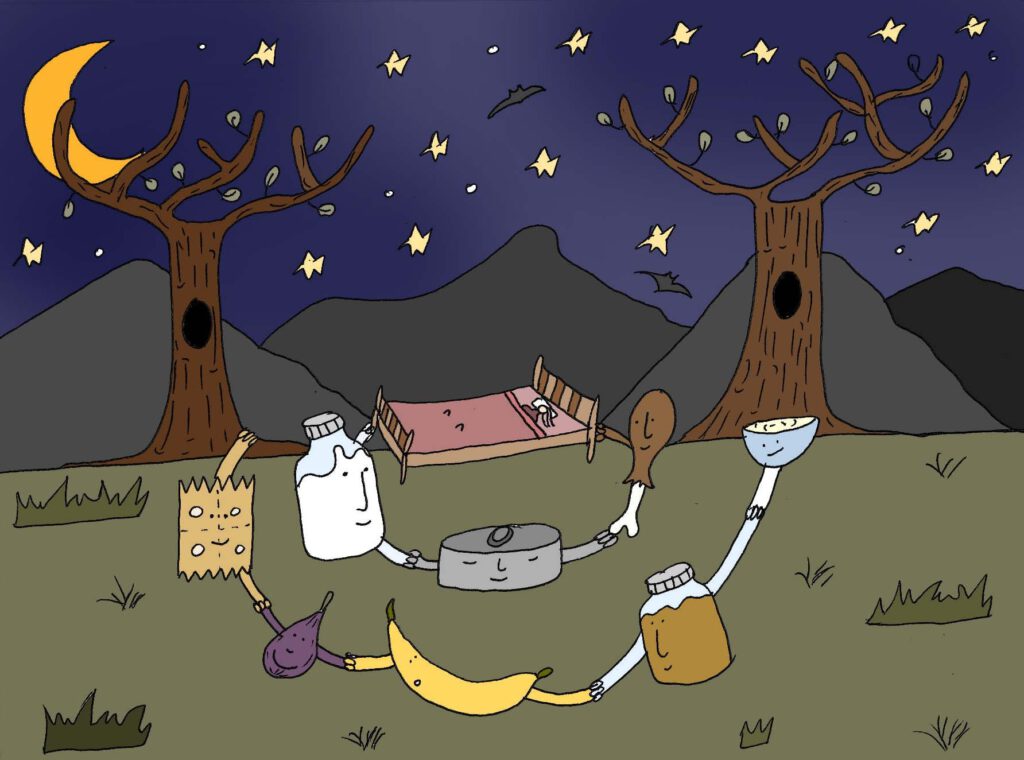
I wake up to the sound of my alarm. It worked! I close my eyes for just a brief moment to travel back to my dream and high five that nut butter toast that helped me sleep through the night.
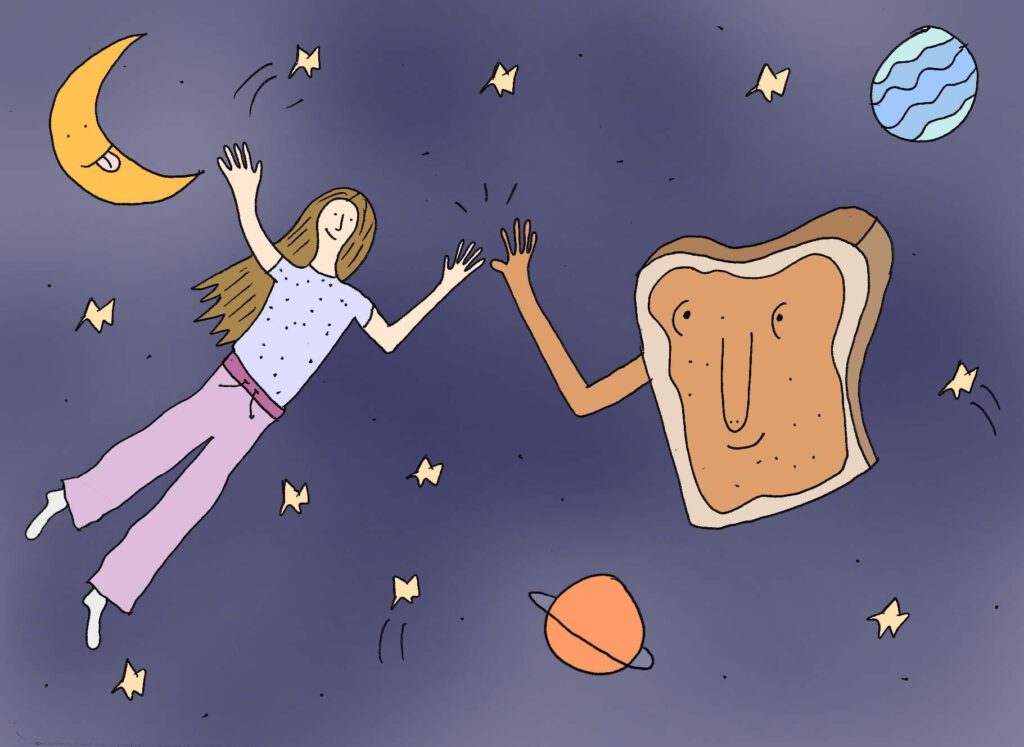
* Note: This article focuses on the role food plays in sleep and is not intended as medical advice. The author acknowledges there may be many different environmental, psychological and physical reasons for insomnia and sleep loss.